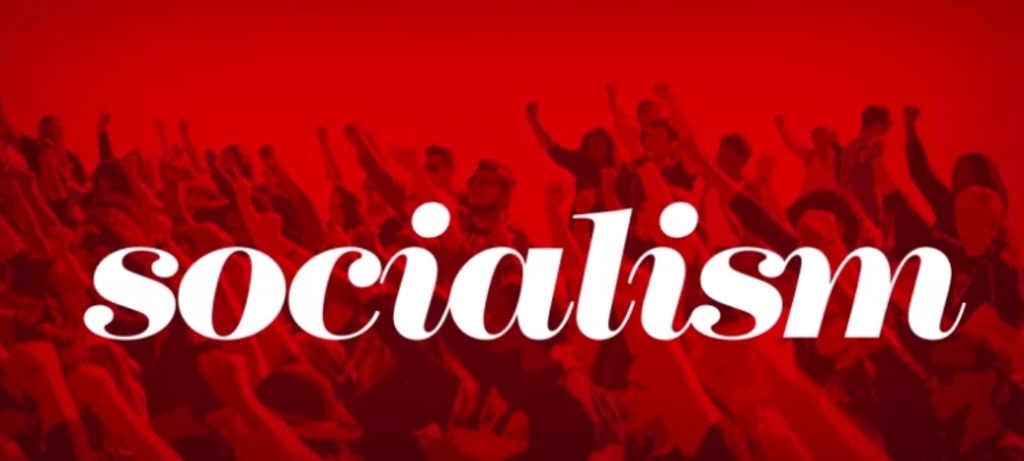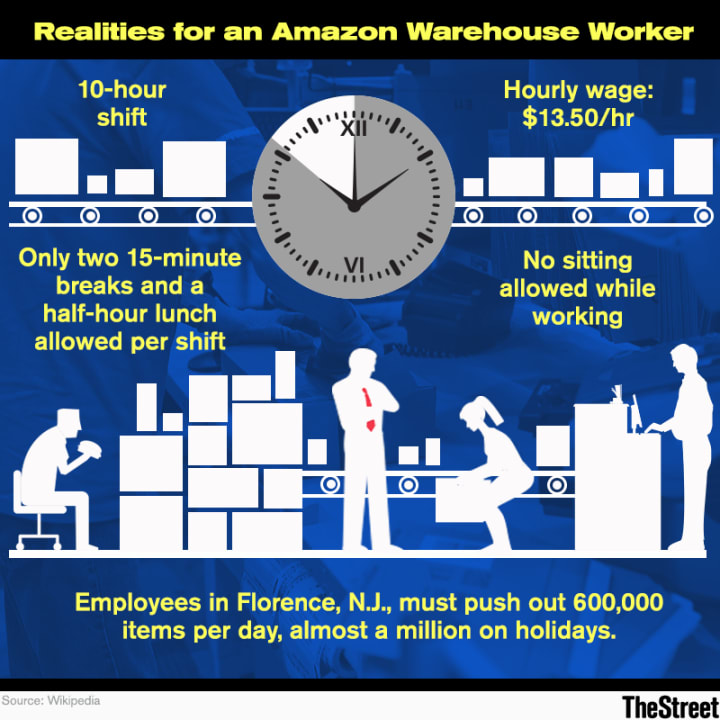
What is socialism?
Socialism by definition is: “A political and economic theory of social organization which advocates that the means of production, distribution, and exchange should be owned or regulated by the community as a whole.”
What does this mean, and why is this relevant now? You may ask.
This means that instead of the wealth being predominantly in the hands of the wealthiest 1 percent, it is redistributed among the community (to schools and hospitals, for example).
It is relevant now, as in the US, there are 842,000 homeless people in a given week (National Coalition for the Homeless) and there are currently 18.4 million empty homes in the country (CNBC). This equates to 22 homes per homeless person, in the US. Even in Ireland, there are 24 unsold homes per homeless person (Central Statistics Office). The homeless could easily be solved through the government seizing the unsold houses, or even buying the houses from the housing agencies at cost price.
In the US, 49 million are in poverty, while 97 million are on the “near poverty” line (US Census Bureau). This means that 146 million (half of the US population) is either in, or close to, poverty. Not only this, but in 40 percent of US states, poverty has experienced a more than 20 percent rise since 2007 (Stateline PEW Centre).
Where are you going to get all that money?
The redistribution of wealth once used to solve all immediate urgencies (homelessness, etc.) will be used to setup state-owned businesses.
These will generate a surplus of income, if operated correctly, which goes back into the community.
What will motivate people to work?
This question has many different answers, to each form of socialism.
I will list various answers here:
Marx said: "From each according to his ability, to each according to his needs," which means work as hard as you can, and take whatever you need.
Kropotkin said even if you don’t work, that doesn’t mean you deserve to die, so you should still be supported by the community, even though you will receive harsh criticism from your peers and neighbours.
In the USSR, article 12 of the 1936 Soviet Constitution states:
"In the USSR, work is a duty and a matter of honour for every able-bodied citizen, in accordance with the principle: 'He who does not work, neither shall he eat.'"
In Yugoslavia, there were "perks" for harder workers, such as a better car, house and more paid vacation. The difference between this and capitalism is that you cannot receive so much wealth, that others suffer because of it.
How’s socialism doing in Venezuela?
This is a question I receive often and is perfectly valid, but I must make things clear:
Venezuela is a capitalist state with a 70 percent privatised economy (Fox News).
The reason people think that Venezuela is a socialist state is because of the large public sector. It is actually running on an economy similar to Sweden or Norway, with mixed sectors.
However, since the private sector makes up over 50 percent of the economy, it is still capitalist.
In fact, in 2017, Venezuelan president Maduro signed deals with 48 private firms to boost production (Venezuelanalysis). This is certainly not a socialist thing to do.
Didn’t socialism kill 100 million people?
This 100 million statistic originates from TheBlack Book of Communism, a book which has been denounced by two of its authors, as well as Harvard University, as it had “remedial math errors.” The historian Peter Kenez also asserted that it was full of “historical inaccuracies.” Werth and Margolin, two of the authors of the book, said that they felt that Courtois (the main author) was obsessed at arriving at a 100 million death toll, and significantly increased estimates in order to reach it.
How should currently capitalist countries transition to socialism?
This is a very difficult question, as although I believe the country should slowly, and peacefully, transition through democracy and voting. This is unfortunately unrealistic, as the modern voting system only allows us to pick from the worst possible options, should it give us a choice at all. So, right now, I believe some form of uprising should take place, quoting The Internationale, “though they offer us concessions, change shall not come from above.”
So, if necessary, riots—such as in Paris—may make the government listen to the demands of the people. A full on revolution might not be needed, so order and peace would remain.
How can you justify taking people’s hard-earned property?
Right, this question is difficult, as many socialists believe that property shouldn’t exist as it perpetuates consumerism, which destroys the planet, and because no one's life should be determined, limited, or measured through material objects. When socialists say the words “Abolish Private Property” people instantly shrink away, thinking that their toothbrush is going to be redistributed by a rifle-wielding mob. I must clarify that there is a distinct line between private and personal property.
Personal Property refers to objects and items that you own, that you use such as your house, phone, toothbrush, or land that you actually use (i.e. farming) for example.
Private Property refers to things you own, but don’t personally use, such as Capital, Apartments you rent out, Investments.
Well, even if they don’t use them, they should still own them, I hear you say. To that, I disagree. If they don’t use them, other people definitely would. For instance, the 245,460 empty houses in Ireland I previously mentioned, are owned, but evidently, aren’t being used. The only thing that is preventing homeless people, starving and cold, from using these empty houses, is the label “private property.”
But people have worked for these things, you say! State-sponsored theft is still theft! It is still immoral!
Private property as a concept is immoral, I answer.
For example, Jeff Bezos has a net worth of 160 billion US dollars. He was rewarded 160 billion dollars for exploiting people. That’s $320,000 per employee. The average Amazon warehouse worker earns $26,000 a year. Jeff Bezos “earns” $26,000 every 46 seconds.
“How does he exploit people? He is the boss, and he provides them with jobs.”
Here is an infographic, listing some facts about working in an Amazon warehouse (The Street):

Not only this, but conditions are so bad that 600 ambulances were called to Amazon’s UK warehouses in just three years.
If he really did care about his worker's conditions, he would improve them, using his own money. However, this would cost, so that would make him less rich.
On the topic of Personal property and Private property, Jeff Bezos has 160 billion dollars and the average US household expenditure is around $67,801, according to USA Today, so we’ll assume that’s roughly his personal property.
So, even if we were to leave him with one billion dollars, and we took the remaining 159 billion dollars, what could we do with it? Well, the median US house price costs $200,000 (CNBC), and there are 554,000 homeless individuals in the US (US Department of Housing and Urban Development), so that means in order to buy every single one of those individuals a house, even though this is most unlikely, as families could be put together, but for essay’s sake, we’ll buy everyone a home, for 110.8 billion dollars. This means we can buy everyone a home, and still have around 48 billion dollars left afterwards.
As I previously mentioned, the average US household has an annual expenditure of $67,801 Dollars.
This means we can afford to support each person, who has just received a home, for a year, for a little over 37 billion dollars. This leaves 11 billion dollars left over.
So why won’t Jeff do this? Greed.
Should he have the power to decide whether or not 554,000 homeless people starve on the streets, after extracting 160 billion dollars from exploiting people?
I think not.
Keep in mind, this is just one person, so imagine redistributing the wealth of the Rothschilds, or Soros, for example.
How socialism could prevent (or at least dampen) the effects of climate change:
One of the defining aspects of socialism is the planned economy.
This means that the government has the power to shut down or take over certain businesses or sectors that are responsible for climate change. A study has shown that just 100 companies are responsible for 71 percent of emissions (The Guardian). According to scientists, we have just 12 years before climate change becomes irreversibly bad. In these 12 years, we must pressure the government to shut down these corporations, which will not work, as their lawyers will pay millions to make sure this does not happen. Our only option is to take matters into our own hands, whatever that may take.
About the Creator
Thomas Brandes
I'm political, and always happy to debate.






Comments
There are no comments for this story
Be the first to respond and start the conversation.